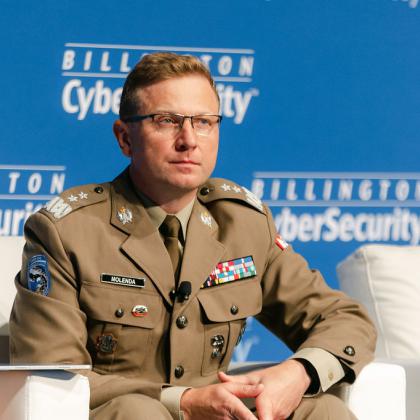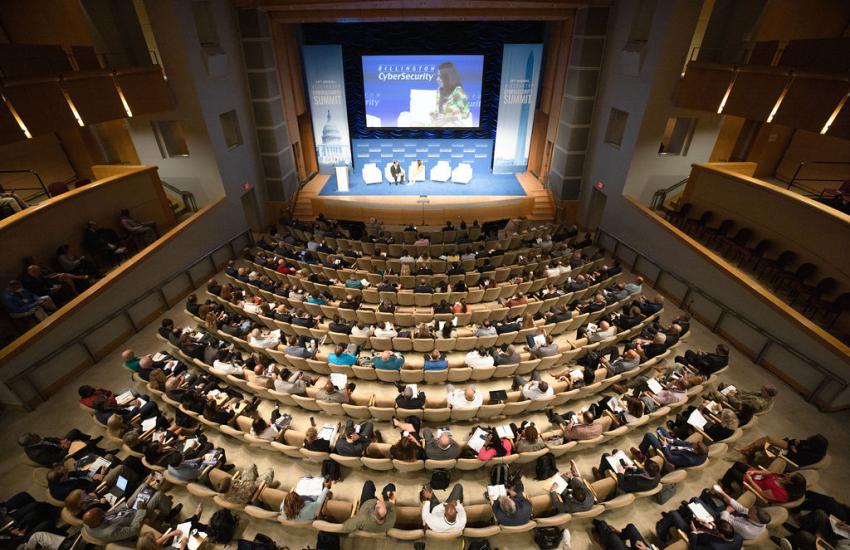Emerging Cybersecurity Challenges from AI-Powered Threats
In the midst of the Ukraine crisis, the ever-expanding digital frontier faces a new breed of threats, empowered by artificial intelligence, as nations collaborate to fortify their cyber defenses.
Larger attack surfaces, with a growing amount of critical services online, as well as an larger pool of nefarious actors leveraging artificial intelligence, have shaped how defenders cooperate and operate. Still, this is only part of the puzzle, as adversaries also team up to empower their activities.
Poland shares borders and history with Russia and its cyber experience during the ongoing Ukraine invasion places the nation at the forefront of this crisis.
“The war is not one-on-one, it's not like that, it's more coalition-on-coalition,” said Maj. Gen. Karon Molenda, commander of the Polish cyber command.
Efforts have crossed the Atlantic and support for Kyiv has also meant mutual support within the larger coalition.
“The Ukraine crisis has shown us that coalitions do matter and we have demonstrated examples of where we have come together and support of Ukraine,” said Sami Khoury, head of the Canadian Centre for Cyber Security.
The speakers addressed the audience at the Billington Cybersecurity Summit on Wednesday, where experts from around the world gathered to discuss current and future issues.
Most panelists at the event underscored the importance of sharing information among government, businesses and academics, what speakers called “the triangle,” to achieve increasing levels of security as new tools, such as generative artificial intelligence, empower nefarious actors.
One of the key aspects tackled in the panel “Cyber Lessons Learned from Countering Conflict” revolved around coalition building, and behind that, trust as the foundation.
“It doesn't work if you don't let people in to help you work on a solution, so open your doors to let people help, because you can't do it all on your own; and be willing to trust your partners internationally and across the triangle,” said Juliette Wilcox cyber security ambassador at the United Kingdom Department for Business and Trade.
Nevertheless, these coalitions may include a mix of participants—or adversaries—that do not necessarily come from friendly or known individuals.
Independent actors may take sides and join the coalition, “even people like Anonymous, they have a role to play, if they decided which side they wanted to be on,” Wilcox told the audience.

The war is not one-on-one, it's not like that, it's more coalition-on-coalition
Moving onto the emerging capabilities of adversaries, the disruption caused by generative artificial intelligence was not feared in technical terms, but attention was centered on the human element in the panel “Implications of Cyber on AI & ChatGPT.”
“These days the phishing emails are actually pretty good,” said Shin-hon Lau, senior cybersecurity engineer at Carnegie Mellon University Software Engineering Institute.
Lau explained the quality increase is a result of generative AI, like ChatGPT, copy editing bad texts and improving their credibility to targets.
And as criminals improve their writing capabilities, the defense also employs better techniques.
“There are also other tools that can still test, ‘Should these emails be actually coming to you?’, things like that, looking at other contexts, and we can actually protect the users, and the enterprise users,” added Lau.
As attackers evolve and leverage new capabilities, those protecting systems find novel ways to improve system security and resilience.







Comments